
Carnival Masks and their History
Masks throughout history have been one of the most sacred objects for many civilizations. To understand why they are, it is necessary to delve into their history.
Japan
From late August to mid-September 2025
Don’t miss the chance to experience the Asakusa Samba Carnival, an extraordinary event that fuses the vibrant energy of Brazilian samba with the fascinating Japanese culture! The Asakusa Carnival is one of the few carnivals in Asia, a celebration you cannot miss if you visit Japan.
Imagine being part of this spectacular event, the Japanese version of the iconic Rio Carnival, where marvelous parades fill the streets of the heart of Tokyo with rhythm and color. It’s a party that promises to transform your senses and create unforgettable memories!
Join us and let yourself be carried away by the magic of the Asakusa Samba Carnival!

Don’t miss the Asakusa Carnival, an unforgettable experience that takes place annually on the last Saturday of August. A vibrant 5-hour parade that starts at 12:00 PM and ends at 5:00 PM.
This is not just any parade, but an explosion of joy and color that will transport you to the heart of Brazil with its contagious rhythm of samba.
Come and be part of this unique celebration that marks the end of summer in Tokyo.






The Asakusa Carnival aims to promote cultural diversity and friendship between Japan and Brazil, attracting thousands of visitors each year.
During the carnival, samba groups from different parts of Japan and Brazil participate in the parade, showcasing their dance skills and the contagious energy of samba.
In addition to performances, there are food stalls and activities that allow attendees to enjoy Brazilian culture.
The Asakusa Samba Carnival Contest is a spectacular event that emulates the vibrant essence of the famous Rio Carnival.
Officially known as the “Asakusa Samba Carnival Parade and Contest”, this parade not only attracts thousands of spectators but has also evolved from a simple costume competition to an authentic samba parade filled with color, rhythm, and energy.
Don’t miss the chance to be part of this unique celebration that captures the magic of Brazilian Carnival in the heart of Asakusa.
In the exciting Asakusa Samba Carnival Parade Contest, the best samba teams from across the country face off in a fierce competition, divided into two leagues: League S1 and League S2.
Here, each team fights not only for prestige but also to remain in the elite, as the lowest-ranked team in League S1 will be replaced by the highest-ranked team in League S2.
Additionally, the two lowest-performing teams in League S2 will have to start over and undergo the same selection process as new applicants. With a limit of 20 teams, the pressure is intense, and each group prepares for an entire year to prove their worth.

More than 500,000 spectators gather to celebrate the Carnival in the Asakusa district of Tokyo.Anonymous

The Asakusa Carnival takes place in the district of the same name in Tokyo (Japan). Kaminarimon-dori, located right in front of the impressive Sensoji Temple or Temple of the Goddess of Mercy and the famous Kaminarimon Gate, is the ideal setting to enjoy this spectacular parade.
This vibrant parade begins at Nitenmon Gate, on Umamichi-dori, and stretches along 800 meters to the end of Kaminarimon-dori, just before Kokusai-dori.
The Asakusa Samba Carnival, which started in 1981, emerged as an initiative to revitalize the Japanese district and boost the local economy, while embracing multiculturalism and strengthening the ties between Brazil and Japan.
In its first year, Brazilian samba groups were invited to Japan, and although initially, the celebration was a timid attempt to replicate the vibrant Brazilian carnival, it managed to survive and evolve over time.
Today, this carnival has transformed into a significant cultural event that attracts thousands of visitors from around the world. Held in the traditional Asakusa district, it perfectly combines Tokyo’s love for culture, music, and dance, becoming a festival that grows and improves every year, solidifying itself as a symbol of the connection between two vibrant cultures.
Although at first glance Japan and Brazil may seem to have little in common, surprisingly, around 300,000 Japanese reside only in São Paulo, and nearly another two million in the rest of Brazil.
This cultural connection has made the carnival inevitably reach Japan, giving rise to the Samba Carnival, which adopts the Brazilian concept of carnival, inspired by the celebrations of the famous Rio Carnival, where samba is the star.
The vibrant costumes, infectious music, feathers, and samba dances intertwine with Japanese influences, creating a unique fusion. It is fascinating to observe how the carnival continues to grow and evolve, incorporating the culture and charm of Japan, revitalizing this celebration.
The matsuri hadaka, which translates to “naked party“, refers to the tiny costumes worn at the Asakusa Carnival
What really surprises those who are not from Japan is to see men and women dancing samba, adorned in those bright and colorful carnival costumes one would expect to find in Rio, while enjoying Brazilian music.
And the most shocking thing is that, under all that makeup and glitter, they are Japanese.
In Tokyo, the vibrant carnival culture comes to life with the competition of two leagues and twenty-six carnival groups and samba schools, fighting for the title of best dance, music, and float of the year. Although their sambadrome stretches only through six small streets, it is the epicenter of this celebration.
With approximately 4,500 dancers, mostly Japanese, competing in the exciting samba events, Tokyo demonstrates that dedication and talent know no boundaries.
The Japanese are recognized for their ability to perfect any product, and although this carnival may not be an improved version of the famous Rio carnival, the seriousness with which they prepare is undeniable. In fact, some choreographers from Brazil are hired to travel to Japan and teach them the dances until they achieve perfection.

You have no idea what to do, what to see, where to stay, where to eat, how to get there, or what to bring to not miss out on the Asakusa Samba Carnival. Relax, here we tell you everything you need. Just prepare to enjoy it like never before.

What to do at the Asakusa Carnival? This carnival is an explosion of color and energy that will leave you breathless. Don't miss the main parade, where samba groups dazzle with their costumes and choreographies. The samba competitions are an unmatched spectacle, with performances that will leave you awestruck.
Additionally, enjoy the gastronomy at the food stalls, where you can savor exquisite Brazilian and Japanese delicacies. And don't forget to visit the craft markets, where you can buy unique souvenirs.
And if you feel like it, join the samba workshops and learn some dance steps! Immerse yourself in this festive atmosphere and experience an unforgettable time.

What to see during the Asakusa Carnival? There is so much more to discover at this carnival! Visit the Sensoji Temple, the oldest Buddhist temple in Tokyo, which is beautifully decorated for the festivities.
Stroll down the historic Nakamise-dori street, filled with souvenir shops and traditional sweets. Relax at Sumida Park, where you will enjoy stunning views of the river.
And don't miss the Tokyo Skytree, an observation tower that offers spectacular views of the city. Every corner of Asakusa is filled with culture and excitement waiting to be explored!

Where to stay during the Asakusa Carnival? Your comfort is essential to fully enjoy the carnival. Consider staying at the luxurious Gracery Asakusa Hotel, which places you within walking distance of Asakusa Station and the impressive Sensoji Temple.
If you're looking for a more affordable option, the Far East Village Hotel Tokyo, Asakusa, offers comfortable rooms at budget-friendly prices.
For an authentic experience, don't hesitate to stay at a traditional ryokan! Remember to book in advance to secure the best prices and availability.

What to eat at the Asakusa Carnival? The gastronomy during the Asakusa Carnival is an experience you cannot miss. Indulge in BAR SMOKED Kotobuki Ibushi Kobo, where the fusion of Japanese and French cuisine comes to life in their smoked dishes. Try the famous grilled fish at Hitsumabushi Nagoya Bincho or the exclusive Kobe Wagyu steak at Kobe Beef Daia Asakusa Rakutenchi Branch.
If you're looking for more affordable options, Kibundosohonten offers delicious tempura, and Sansada is perfect for seafood lovers. Let every bite transport you to a world of flavors while enjoying the carnival!

How to get to the Asakusa Carnival? Getting to the Asakusa Samba Carnival is very easy. Fly to Tokyo and then take the Shinkansen (bullet train) or a domestic flight from another Japanese city. Once in Tokyo, the subway is your best ally for getting quickly to Asakusa.
You can also opt for a commuter train or a taxi if you prefer more comfort. If you prefer to drive, rent a car and use navigation apps to arrive without complications. Plan your trip in advance!

What to bring to the Asakusa Carnival? To make the most of the Asakusa Carnival, make sure to pack the essentials. Don't forget your camera or mobile phone to capture those unforgettable moments.
Wear comfortable clothing and suitable footwear for walking and dancing, and bring a hat or cap to protect yourself from the sun. Stay hydrated with water and carry cash, as some stalls may not accept cards.
A light backpack will be very useful to store your belongings. And if you plan to stay late, a light jacket will keep you warm when night falls. Get ready for an unforgettable experience!

Masks throughout history have been one of the most sacred objects for many civilizations. To understand why they are, it is necessary to delve into their history.

Here is everything you need to know about the history and the origins of carnival, the world’s oldest party!

Rio de Janeiro Carnival is the biggest & most famous carnival celebration in the world. Rio hosts the world-famous parades, street parties & masquerade balls.

Everyone knows Rio Carnival, but here are some of the other best places around the world where you can celebrate carnival.

The Tenerife Carnival is the biggest party in Europe. Here are the best suggestions to have the time of your life.
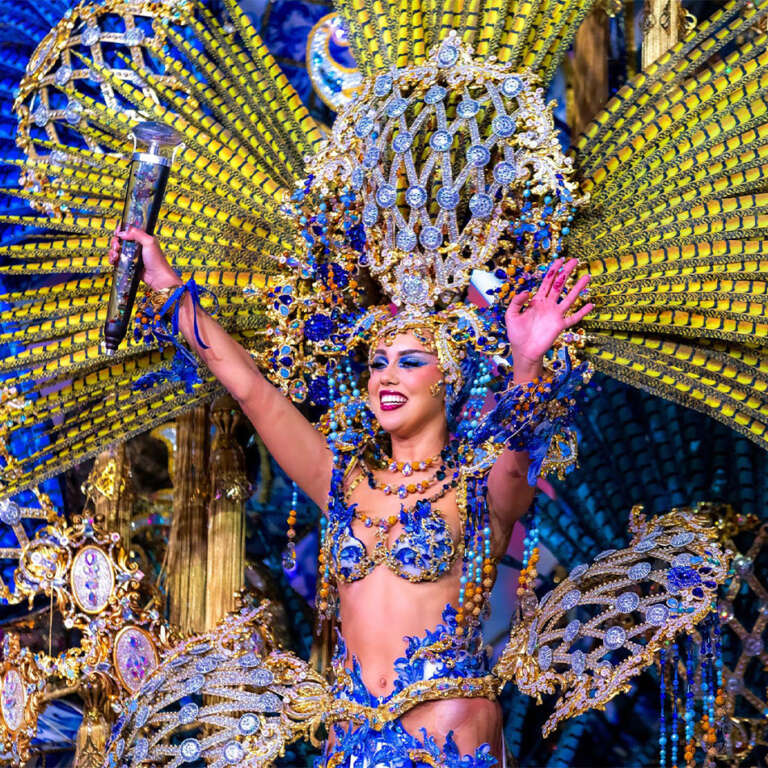
January 16 to February 22, 2026
More than 250,000 people visit Santa Cruz in Tenerife to celebrate the carnival.
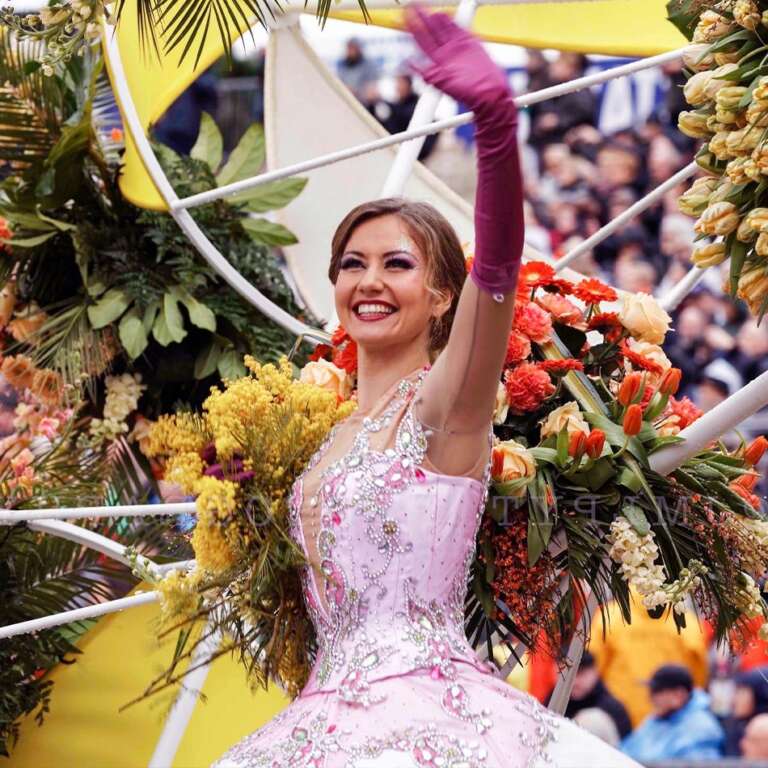
February 11 to March 1, 2026
You will be amazed by a shower of over one hundred thousand flowers falling from the sky.

The carnival will be celebrated in June 2025
Hollywood Boulevard becomes a Caribbean-American paradise to the rhythm of samba, soca, and reggae.
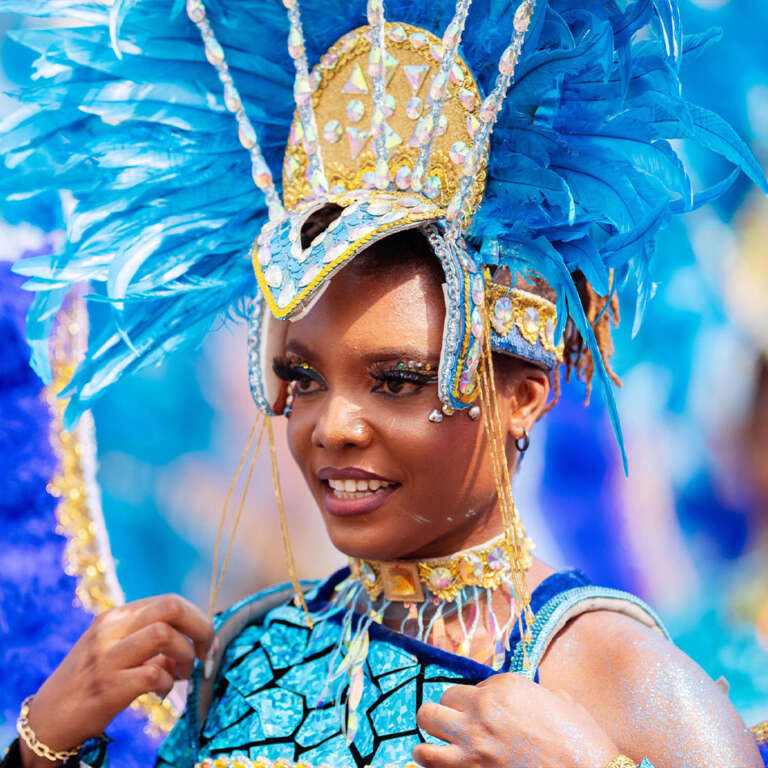
December 1 to December 31, 2025
Over two million tourists visit the Calabar carnival every year, the pride of Nigeria.
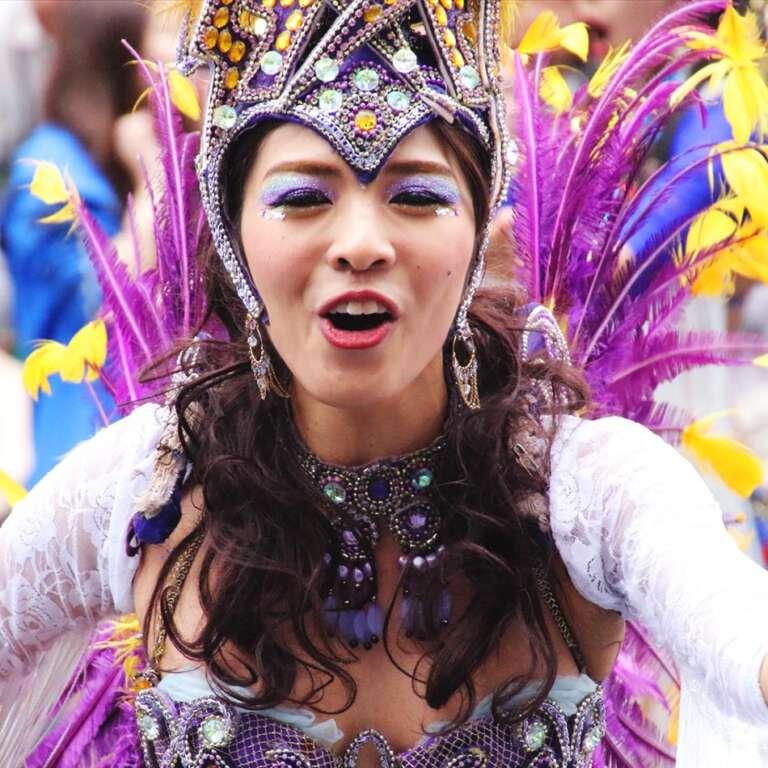
From late August to mid-September 2025
Let yourself be carried away by the magic of Brazilian samba on the streets of Japan.
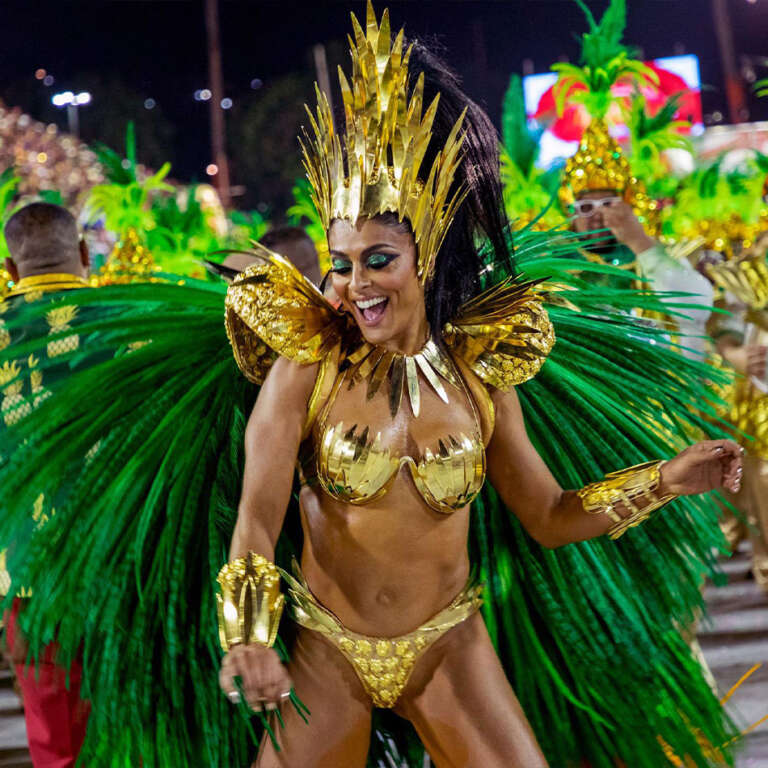
February 13th to February 21st, 2026
Parades, samba, blocos, street parties, masked dances, and nightlife.